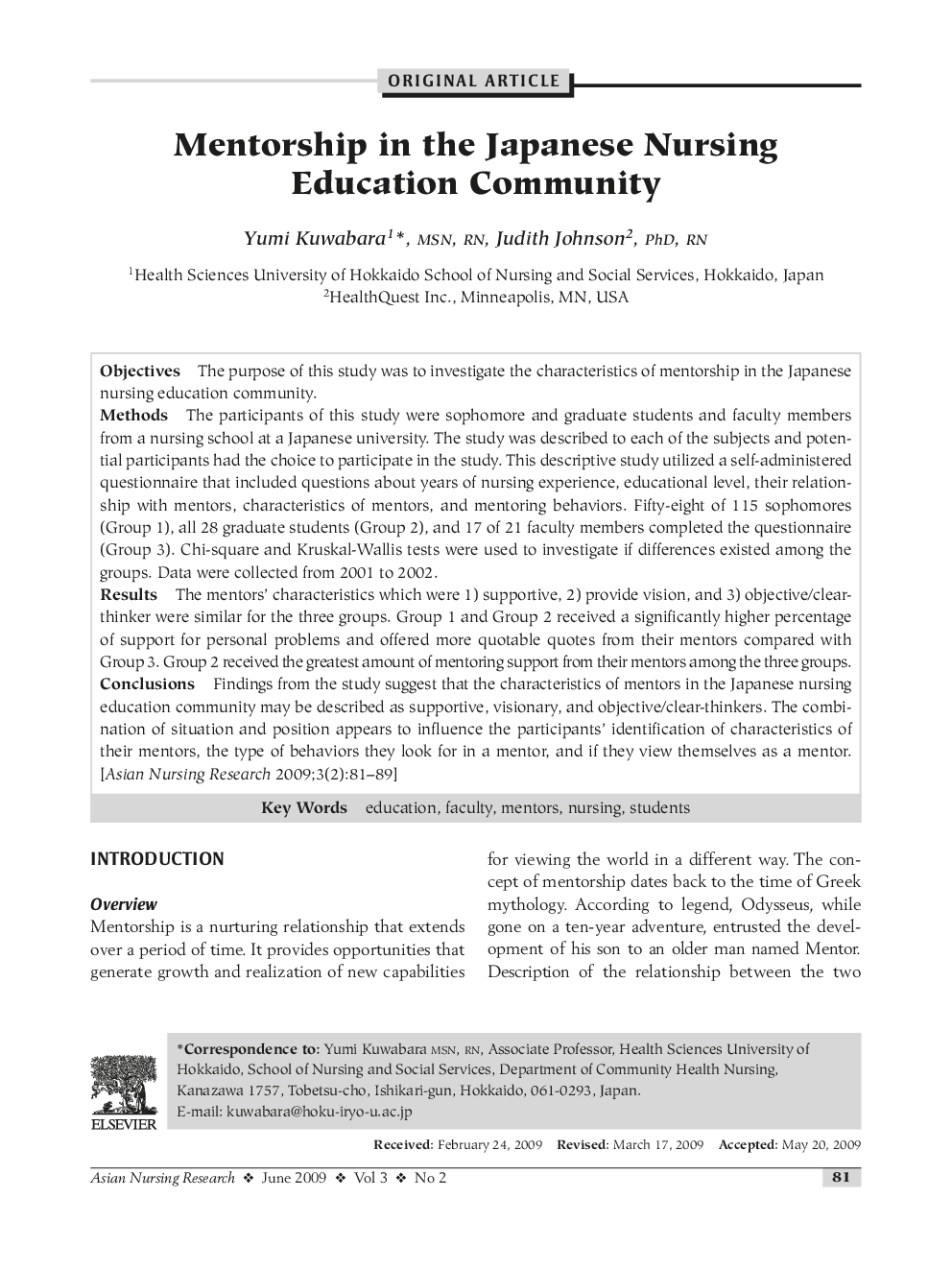| Article ID | Journal | Published Year | Pages | File Type |
|---|---|---|---|---|
| 2645206 | Asian Nursing Research | 2009 | 9 Pages |
ObjectivesThe purpose of this study was to investigate the characteristics of mentorship in the Japanese nursing education community.MethodsThe participants of this study were sophomore and graduate students and faculty members from a nursing school at a Japanese university. The study was described to each of the subjects and potential participants had the choice to participate in the study. This descriptive study utilized a self-administered questionnaire that included questions about years of nursing experience, educational level, their relationship with mentors, characteristics of mentors, and mentoring behaviors. Fifty-eight of 115 sophomores (Group 1), all 28 graduate students (Group 2), and 17 of 21 faculty members completed the questionnaire (Group 3). Chi-square and Kruskal-Wallis tests were used to investigate if differences existed among the groups. Data were collected from 2001 to 2002.ResultsThe mentors' characteristics which were 1) supportive, 2) provide vision, and 3) objective/clear-thinker were similar for the three groups. Group 1 and Group 2 received a significantly higher percentage of support for personal problems and offered more quotable quotes from their mentors compared with Group 3. Group 2 received the greatest amount of mentoring support from their mentors among the three groups.ConclusionsFindings from the study suggest that the characteristics of mentors in the Japanese nursing education community may be described as supportive, visionary, and objective/clear-thinkers. The combination of situation and position appears to influence the participants' identification of characteristics of their mentors, the type of behaviors they look for in a mentor, and if they view themselves as a mentor.
